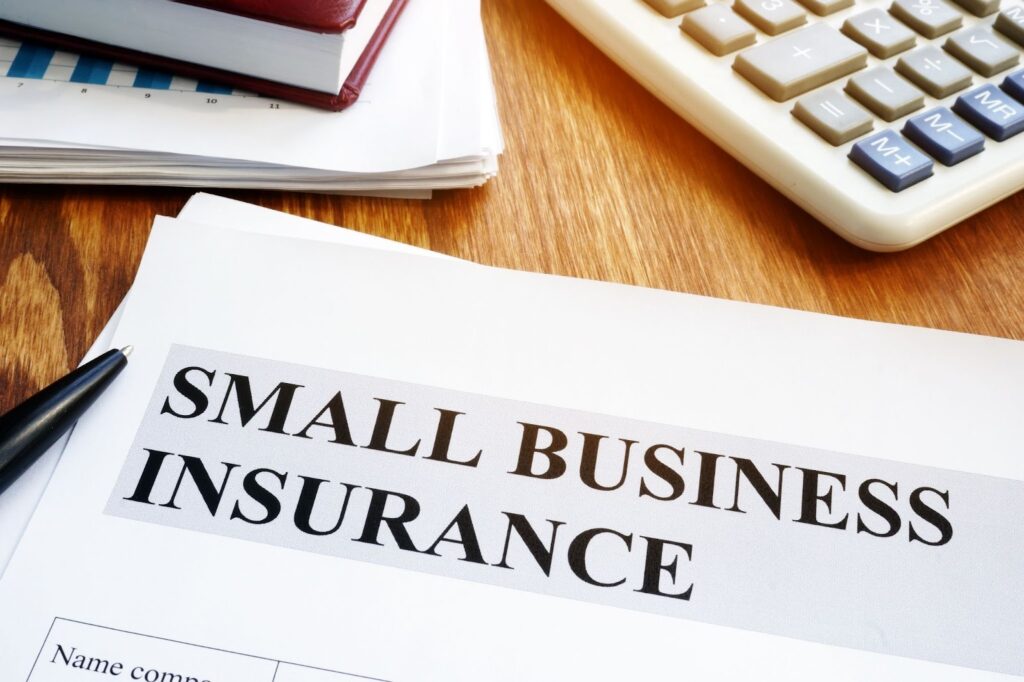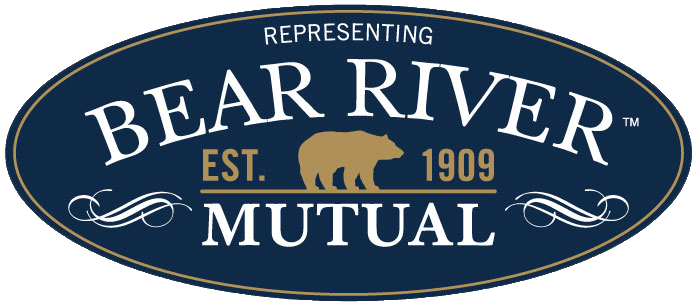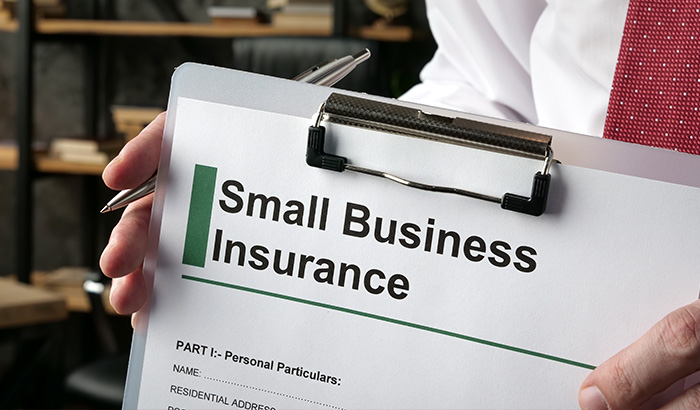Are you a small business owner? Here are the small business insurance options you should consider.
Not all businesses are created equally; similarly, not all types of insurance are the same. There are countless types of insurance out there. The major categories include automobile, health, homeowners or renters, business, and more.
Within those groups are subcategories. For example, car insurance includes six major types: auto liability coverage, uninsured and underinsured motorist coverage, comprehensive coverage, collision coverage, and personal injury protection.
Homeowners insurance has options such as dwelling coverage, additional living expense coverage, personal property protection, and more. Business insurance is no different, and today, we are diving into the options every small business should consider.
Continue scrolling below to learn more.

What is Business Insurance?
If you are a business owner, investing in insurance for your company is one of the best, most effective ways to manage risk. This incredibly useful and vital tool can help businesses manage losses that may arise from unplanned or unforeseen events and circumstances.
Whether it be a natural disaster, cyber attack, or a single personal liability claim, your company could get wiped out without insurance.
Owners and managers will be able to determine which business insurance types are best for their situation by reading this article and then evaluating and understanding their unique risks. Finding a trusted and experienced insurance professional can also be helpful.
Why is Insurance for Small Businesses a Must?
There is no denying that owning or operating a business, large or small, can be a risky endeavor. Insurance is a crucial comportment that protects companies against many potential threats. Here are some reasons why insurance coverage is essential for your business:
- Some types of insurance coverage for businesses are legally required.
- Insurance can cover unpredictable business-related situations. It provides companies with a financial safety net. It covers just about everything that poses a threat or potential accident, such as property damage, lawsuits, theft, data breach, and more.
- Businesses that possess insurance appear a lot safer, more responsible, and more professional to customers, investors, and employees. It demonstrates to these individuals the solidity of your company and enables you to conduct business confidently, build strong relationships, and close big deals (more on this below).
8 Small Business Insurance Types to Consider
When you own or run a business, you understand the importance of having insurance protection. In fact, the more protection, the better! There are many ways in which large or small business owners can become protected by insurance. Below are eight types of insurance for businesses that you should consider:
1. General Liability Insurance
WHO IT’S FOR: All businesses, large and small.
WHAT IT DOES: This coverage protects against financial loss resulting from property damage, bodily injury, medical expenses, defending lawsuits, libel, slander, and settlement bonds or judgments.
MORE INFORMATION: General liability insurance for commercial and business use can positively impact business growth and reputation in the following ways:
Demonstrates Business Establishment — Investing in a general liability insurance policy means investing in your future and implies that you intend to bin business well into the future. Others will see your investment as your unwillingness to risk a claim that could leave your business in ruins.
Shows Responsibility — Obtaining small business liability insurance communicates to your clients that you are willing to assume responsibility in the event of an accident or lawsuit. It also demonstrates that you have your clients’ best interests at heart.
Increase Client Contracts — While the law does not typically require general liability insurance, there are many clients that do. Some clients consider this type of insurance a prerequisite for working with them because they don’t want to be liable for mistakes that aren’t theirs.
2. Professional Liability Insurance
WHO IT’S FOR: Businesses that provide services to customers
WHAT IT DOES: Professional liability insurance, often called errors and omissions insurance or E & O insurance, protects businesses from errors, negligence, or malpractice claims.
MORE INFORMATION: Every business differs significantly from one to the next, and the insurance needs for professional liability insurance are no different. The good news is these policies can be customized to meet your company’s specific needs.
Knowing what is covered by your insurance policies is crucial; knowing what isn’t covered is just as important. Here are some of the events your professional liability policy may exclude:
- Property damage
- Bodily injury
- Employment matters
- Personally identifiable information
- False advertising
- Fraudulent acts
For complete details of all the exclusions or for answers to any questions, please thoroughly read your policy or contact your insurance company.
3. Product Liability Insurance
WHO IT’S FOR: Businesses that manufacture, produce, wholesale, distribute, and retail any product
WHAT IT DOES: This coverage protects businesses against financial loss as a result of any defective products that cause injury or bodily harm.
MORE INFORMATION: Even if a company takes every step and precaution to ensure its products are safe, the business could still be sued thanks to damages caused by a faulty product.
While policies vary from one to the next, product liability coverage typically does not include the following:
- Tech Products — Product liability is meant for physical harm, not digital harm. Any damage done by technology-related products requires E & O insurance or a professional liability policy.
- Employee Injuries — Workers’ compensation insurance covers employee injuries and lost wages.
- Customer Injuries — A customer injury at your business, like a slip and fall injury, is covered by general liability insurance.
- Commercial Car Accidents — Accidents involving your commercial automobile are covered by commercial car insurance.
- And more.

4. Commercial Property Insurance
WHO IT’S FOR: Any businesses that have a significant amount of property and/or physical assets
WHAT IT DOES: This type of coverage protects businesses against loss and damage of company property due to various types of events such as wind and hail storms, fire, smoke, vandalism, and civil disobedience.
MORE INFORMATION: Similar to how homeowners should have homeowners’ insurance, business owners should at least consider having property insurance, even if they simply rent the space. This kind of insurance typically covers inventory, equipment, signage, furniture, and more.
There are typically two types of commercial property insurance:
- Replacement Cost Coverage pays to replace or rebuild your business property using materials of comparable or the same value. There is no deduction for depreciation.
- Actual Cash Value Coverage pays the present-day value of the damaged commercial property. It takes into account depreciation, so more than a claims check is needed to replace what was lost with new items; business owners have to pay the difference. Having actual cash value coverage reduces your monthly insurance cost.
Like other types of commercial insurance, it doesn’t cover everything. Here’s where commercial property insurance will not help:
- You get in a car crash while driving the company car for a business-related delivery. These scenarios are covered by commercial car insurance.
- Severe rainfall led to your office building flooding. Your commercial property insurance policy does not cover flood damage. A separate flood insurance policy must be purchased to protect your office from the costs of flood damage.
- You accidentally damage your client’s property while visiting them on business. This type of property damage falls under general liability insurance.
5. Home-Based Business Insurance
WHO IT’S FOR: Any businesses run out of the owner’s residence, often small businesses.
WHAT IT DOES: This coverage is added to homeowner’s insurance as a homeowners policy endorsement which can offer greater protection for your business equipment, supplies, products, and inventory, as well as liability coverage for third-party injuries.
MORE INFORMATION: It is critical to remember that, in most cases, homeowners’ or renters’ insurance does not cover business liabilities. Without a separate business policy, you may be responsible for the entire cost of various legal and medical fees. If you answer yes to any of the following questions, you should definitely consider home-based insurance for your business:
- Do you store business products, supplies, or inventory at your home?
- Do clients or customers visit your house?
- Does your business have employees?
- If your home became damaged, would it interrupt your business process?
6. Workers’ Compensation Insurance
WHO IT’S FOR: All businesses with employees.
WHAT IT DOES: Workers’ compensation is essential to your business’s insurance coverage. It covers disability, medical treatments, and death benefits in the event of a work-related or on-site injury or death.
MORE INFORMATION: Is the work or environment at your company seemingly low-risk or safe? Even still, you and your employees need to be covered with this insurance, even seemingly low-risk work. Slip-and-fall injuries are one of the most common claims and can lead to medical issues such as chronic neck or back pain that may result in costly claims.
Because workers’ compensation insurance is required by law in Utah, there are penalties for businesses that violate the statute. Penalties may include:
- At least a $1,000 fine
- Legal injunction against doing business in Utah
- Loss of the “exclusive remedy” which protects employers against getting sued for workers’ compensation benefits.
7. Commercial Car Insurance
WHO IT’S FOR: Businesses requiring one or more company vehicles.
WHAT IT DOES: If any of your vehicles are owned by an LLC, partnership, or corporation, you’ll typically need commercial auto insurance. Moreover, if any vehicles are titled or registered to your business, including a corporation or partnership, you’ll require this type of insurance.
Lastly, if your or any employees lease or rent vehicles for business purposes, you’ll usually need commercial car insurance. Please ensure your business vehicles are protected from liability in the event of an accident.
MORE INFORMATION: Have you ever wondered about the difference between business and commercial automobile insurance? Here’s what you need to know:
Commercial automobile insurance covers specialized vehicles designed for specific jobs, whereas business automobile insurance covers vehicles used for trips through regular traffic.
8. Business Owner’s Policy
WHO IT’S FOR: Most small business owners, but especially those with home-based businesses.
WHAT IT DOES: A business owner’s policy is an insurance package that combines business property and business liability insurance into one policy. They simplify the insurance purchase process and can save you money.
MORE INFORMATION: A business owner’s policy, often referred to as BOP, protects business owners from liability claims and related lawsuits. It also offers safeguards for your buildings, equipment, and inventory. It also covers business owners financially if the business unexpectedly shuts down from a covered loss.
Small business owners should definitely consider a business owner’s policy since it offers valuable protection to their business if they encounter scenarios such as:
- A contractor on your crew loses control of their sander, which damages the wall of a client’s home, or they accidentally break a valuable item while doing their job.
- A customer trips over a raised sidewalk edge while visiting your business, falls, and breaks their arm. They sue you to cover their medical expenses.
- A pipe bursts, and your workroom floods, damaging business-essential equipment and lots of your inventory.

Need Small Business Insurance? The Professionals at Bear River Mutual Insurance Can Help!
Do you want to explore your small business insurance options? Our team of experts at Bear River Mutual is here for you!
Insurance is an essential component of owning a business of any size, and without it, your company, your employees, and everything you’ve worked so hard for is at risk. That’s why our team of knowledgeable and trusted professionals is here to help you find the right policy for your business that provides all the necessary coverage. Our qualified team is here to help you find the best policy for your business’s specific needs.
We also understand that many questions come with the various business insurance types for you and your business, so we are here to help you all along the way and answer any questions you have.
You can find us in three convenient locations in Northern Utah to serve you better: Salt Lake City, Orem, and Provo. Contact us to get a free quote today.




